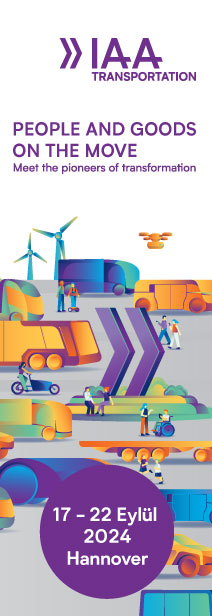Knowing whether the truck has reached all its stops on time, whether it is stuck in traffic, or whether the loading process is behind schedule is important for the material and transportation planners at the plant. They are responsible for ensuring that goods are available for the Homburg production lines on time and according to requirements.
“Thanks to the IT platform and new mobile app we developed for truck drivers as part of the ProveIT research project, material and transportation planners can monitor the plant’s entire supply chain and know how to respond if there is a disruption,” says Dr. Markus Bauer, program manager for logistics IT at Bosch. “Using the app, the driver records all important incidents: departure time, arrival, the beginning and end of a loading process, onward departure, and delays in transit.
This real-time data is pooled and made available on the ProveIT platform.” Bauer headed up the three-year research project ProveIT (production plan-based recovery of vehicle routing plans within integrated transport networks), which aimed to create a system for the smooth operation of connected logistics chains. In addition to Bosch, six further companies and institutions took part in the publicly funded project, which has now been successfully completed, with tangible results. Besides the ProveIT platform and the app for truck drivers, these include services for material and transportation planners.
Smart platform
The platform ensures the best possible utilization of all transport channels. It generates freight orders that intelligently combine all the detailed data on the items and packaging materials. For material and transportation planners, the benefit is a recommended routing plan. They also receive all the information they need to be able to respond appropriately to disruptions. For example, the platform pools all the data needed to monitor the supply chain, and it automatically checks whether and to what extent the current supply chain status deviates from the planned status (e.g. by comparing status reports that the driver sends via the app with inventory levels and production plans). This means that it knows how many units of a particular item are still in stock and what the production process requires at a particular point in time. “Material and transportation planners can rest assured that the digital assistant is keeping an eye on the route. They will only be sent a warning if they need to intervene,” Bauer explains. Using a standardized data set, material and transportation planners can fine-tune the predetermined strategic and tactical plan in real time. In this way, they always know whether an extra trip is the only solution for a disruption, or whether other, more cost-effective solutions exist.
Is an extra trip really necessary?
A deviation management feature built into the platform weighs up a variety of options and their consequences. For example, if a truck is stuck in a traffic jam, the platform calculates whether it makes sense to complete the route in spite of the delay, or whether a second truck should be sent straight to the suppliers whose goods are needed most urgently on the shop floor. The platform computes which decision makes most economic sense. Researchers have developed a range of disruption services for this issue. Such services include emails sent to transportation planners’ inboxes, or notifications that appear on their computer screens. “Using our digital tools, companies can improve utilization of their trucks’ capacity, decrease transport costs, lower their CO2 emissions, and make their transportation planners’ work easier,” Bauer says.
A strong partner in the project group
Seven partners were involved in ProveIT: the software developers PTV and LOCOM, the industrial enterprises Bosch and ZF, the logistics company Geis, and the Research Center for Information Technology (FZI) and the Institute for Materials Handling and Logistics (IFL), both of which are part of the Karlsruhe Institute of Technology (KIT). The research project was headed up by Bosch and supported financially by the German Federal Ministry for Economic Affairs and Energy. The consortium fulfilled the requirements defined at the start of the project: making complex supply chains manageable with a view to connected manufacturing and developing the requisite digital tools.
Further development of the app
Following the completion of the research project, Bosch entered into an alliance with FZI. The two partners want to develop additional applications such as digital freight documents, and to incorporate these into Bosch’s transport processes.










